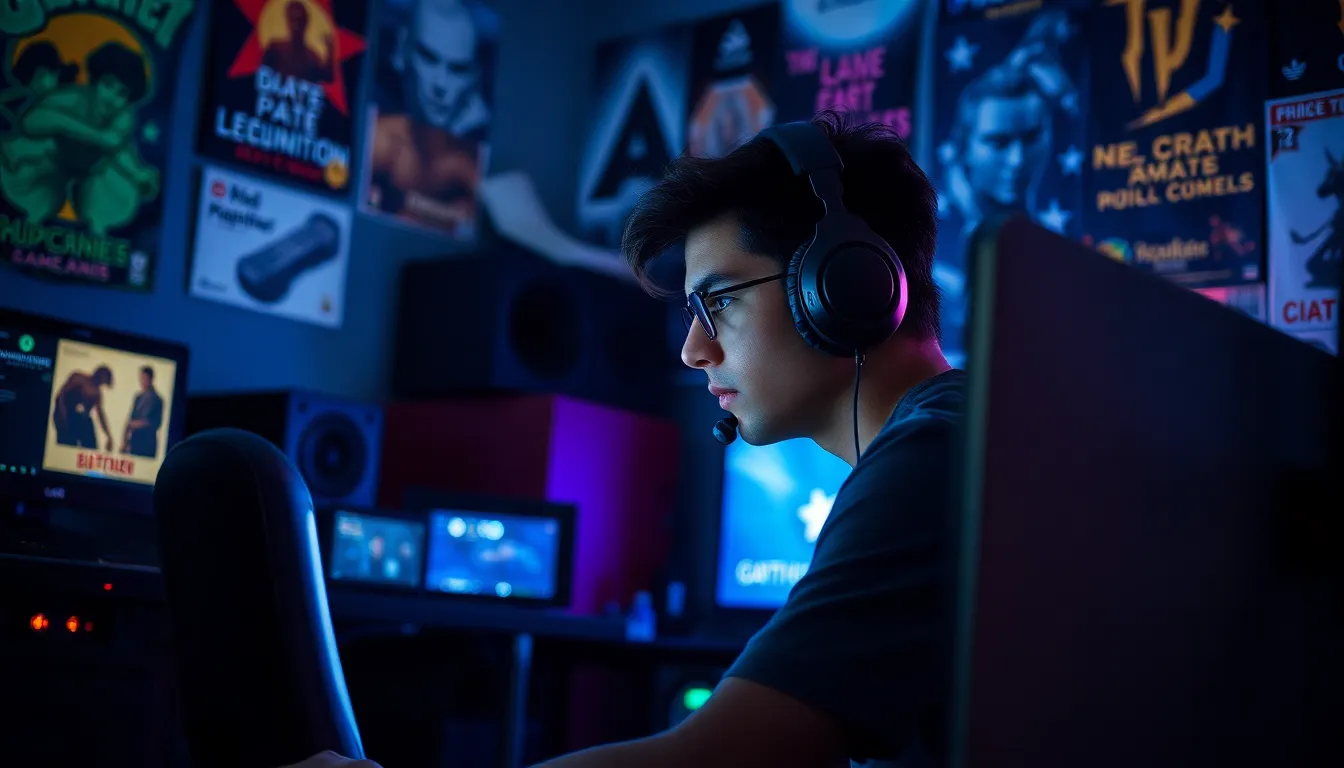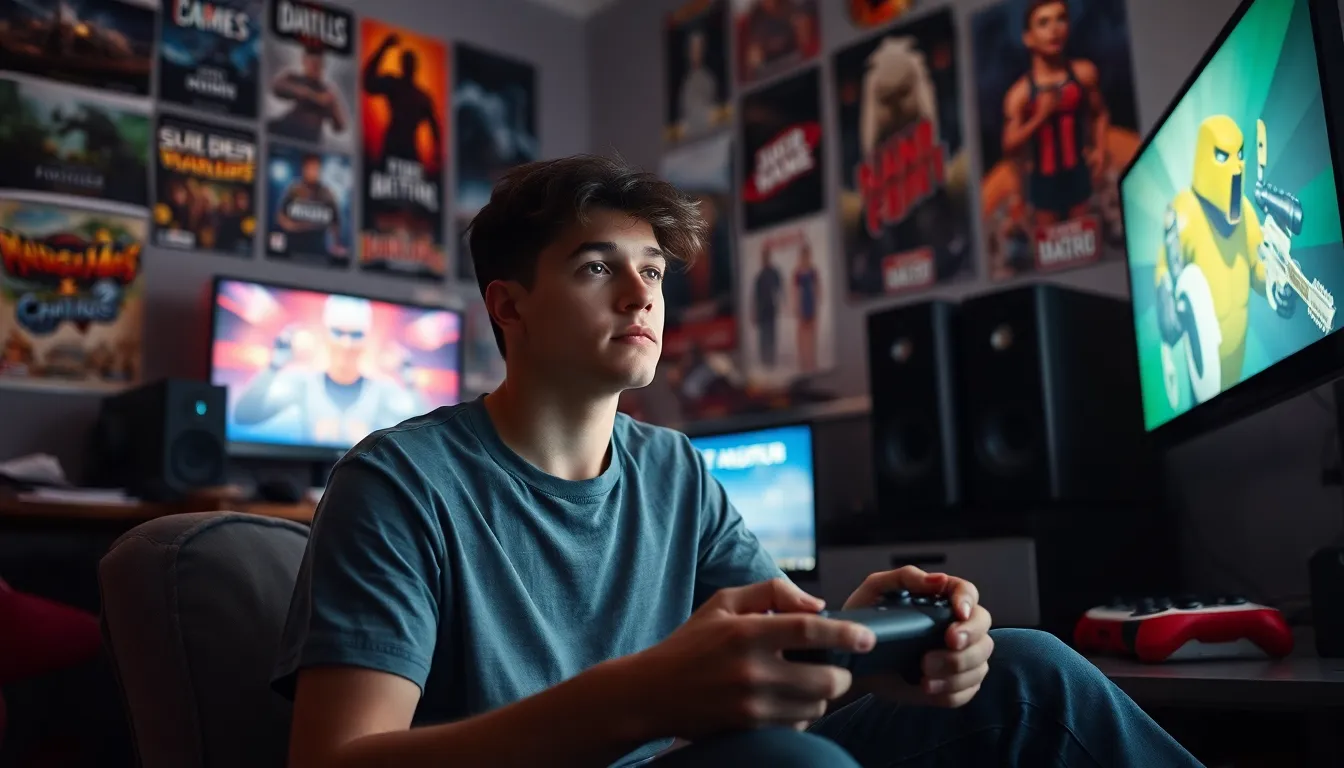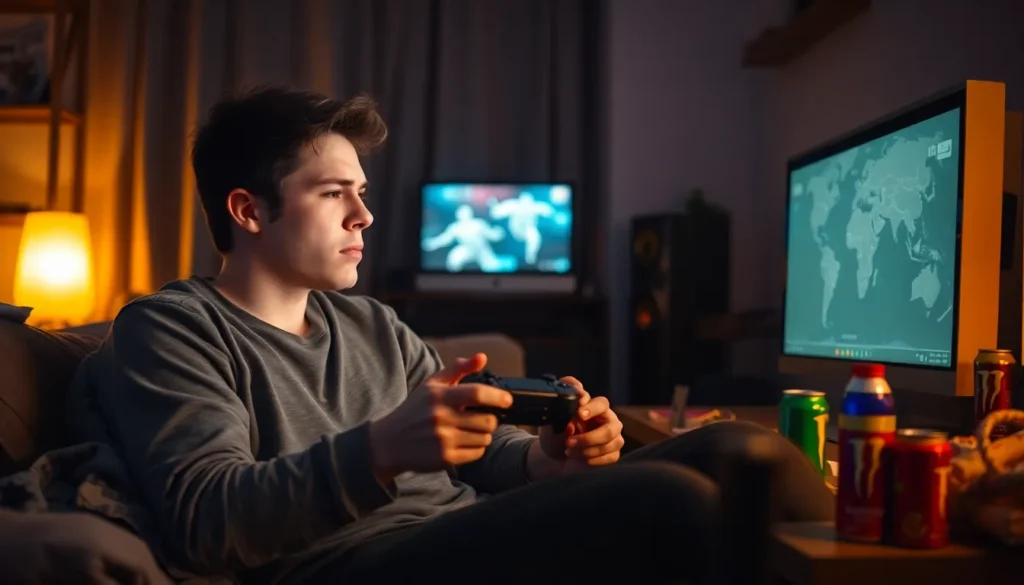In a world where epic quests and pixelated adventures beckon from screens, it’s easy to lose track of time—and reality. Gaming can be a thrilling escape, but when the hours stack up like virtual trophies, one has to wonder: can too much gaming lead to anxiety? As players dive deeper into their favorite realms, they might find themselves battling more than just digital foes.
Can Too Much Gaming Overdertoza Cause Anxiety
Overdertoza refers to the mental strain that can arise from excessive gaming. This condition may contribute to feelings of unease and heightened anxiety levels for players.
Definition of Overdertoza
Overdertoza arises when individuals engage in prolonged gaming without adequate breaks or moderation. This excessive engagement leads to a disconnection from reality, impacting daily responsibilities and relationships. As time spent gaming increases, the immersive experience often blurs boundaries between the virtual and real world. Players become invested in their gaming experiences, neglecting physical and emotional needs, which can exacerbate stress and anxiety. Awareness of overdertoza is crucial for players who want to maintain a healthy balance between gaming and everyday life.
Common Symptoms
Common symptoms of overdertoza include heightened anxiety, irritability, and difficulty concentrating on non-gaming activities. Emotional instability often presents itself, with players feeling overwhelmed by in-game stressors and real-life pressures. Sleep disturbances, such as insomnia or difficulty waking up, frequently occur due to altered sleep patterns from extended gaming sessions. Social withdrawal can happen as players prioritize gaming over interactions with friends and family. Recognizing these symptoms allows individuals to address the impact of excessive gaming on their mental health effectively.
The Relationship Between Gaming and Anxiety

Excessive gaming presents a complex connection to mental health issues, particularly anxiety. Players often immerse themselves deeply in virtual worlds, which can lead to disorientation and increased stress levels.
How Gaming Affects Mental Health

Gaming offers thrill and engagement, yet it may also trigger mental health challenges. Long gaming sessions can disrupt regular routines, affecting sleep patterns and social interactions. The immediate rewards found in games sometimes overshadow real-life responsibilities, creating feelings of guilt and anxiety. Players focusing solely on gaming may neglect self-care, which can worsen their emotional state. This lack of balance often manifests as increased irritability and emotional volatility.
Factors That Contribute to Anxiety in Gamers
Several aspects contribute to heightened anxiety among gamers. Competition can create pressure, leading to stress during multiplayer scenarios. Additionally, excessive screen time often impacts physical health, which in turn affects mental well-being. Social interactions within games can be positive or negative, with toxic environments exacerbating feelings of isolation. Furthermore, individuals may find it challenging to disconnect from games due to their immersive nature, leading to increased anxiety as reality becomes less accessible.
Signs of Excessive Gaming
Excessive gaming can manifest through various noticeable signs. Recognizing these signs helps individuals identify when gaming may be negatively impacting their mental health.
Recognizing the Warning Signs
Warning signs of excessive gaming include increased gaming time and neglect of daily responsibilities. When individuals spend hours immersed in games, they may lose track of time. Changes in social interactions often occur as gamers withdraw from friends and family. Irritability can become evident when gaming is interrupted. Difficulty concentrating on tasks outside of gaming frequently arises, indicating a loss of focus. Furthermore, players may experience heightened emotional responses, showcasing how gaming can alter mood.
Psychological and Emotional Impact
Excessive gaming leads to significant psychological and emotional consequences. Anxiety levels can rise as individuals become overwhelmed by in-game events and competitive pressures. Emotional instability can result from frequent gaming sessions, where players find it hard to manage stress. Sleep disturbances often follow as late-night gaming interferes with rest. Social withdrawal signifies the impact on relationships, as individuals prioritize virtual interactions over real-life connections. Players may also feel guilt and frustration when they cannot balance gaming with responsibilities.
Managing Gaming Habits
Understanding how to manage gaming habits effectively can help mitigate anxiety associated with excessive gaming. Establishing boundaries is paramount for maintaining balance between gaming and daily responsibilities.
Setting Healthy Boundaries
Creating a structured gaming schedule proves essential for responsible gaming. Allocating specific times each day dedicated to gaming helps prevent overindulgence. Limiting sessions to a set duration, such as one to two hours, enables gamers to maintain focus on other life aspects. Players benefit from turning off notifications during gameplay to minimize distractions from real-life obligations. Incorporating regular breaks during lengthy gaming sessions promotes mental clarity and emotional well-being. Committing to non-gaming activities on certain days fosters a healthier lifestyle and deeper connections with family and friends.
Alternative Stress Relief Strategies
Engaging in alternative stress relief strategies offers valuable methods to reduce anxiety. Activities such as exercise provide physical benefits and boost mental health. Practicing mindfulness techniques, like meditation or deep breathing exercises, can enhance emotional stability. Exploring hobbies other than gaming, such as reading or painting, introduces variety and joy into daily routines. Establishing strong social connections through face-to-face interactions strengthens support systems and reduces feelings of isolation. Participating in group activities fosters teamwork and builds lasting friendships outside the gaming world.
Maintaining a Healthy Balance
Excessive gaming can lead to significant mental health challenges including anxiety. The immersive nature of games often causes players to lose track of time and reality which can create feelings of unease. Overdertoza highlights the mental strain associated with prolonged gaming sessions and its impact on daily life.
Recognizing the signs of excessive gaming is essential for maintaining a healthy balance. Establishing boundaries and incorporating breaks can help mitigate anxiety levels. By prioritizing real-life interactions and responsibilities over virtual ones, players can enjoy gaming while safeguarding their mental well-being.

